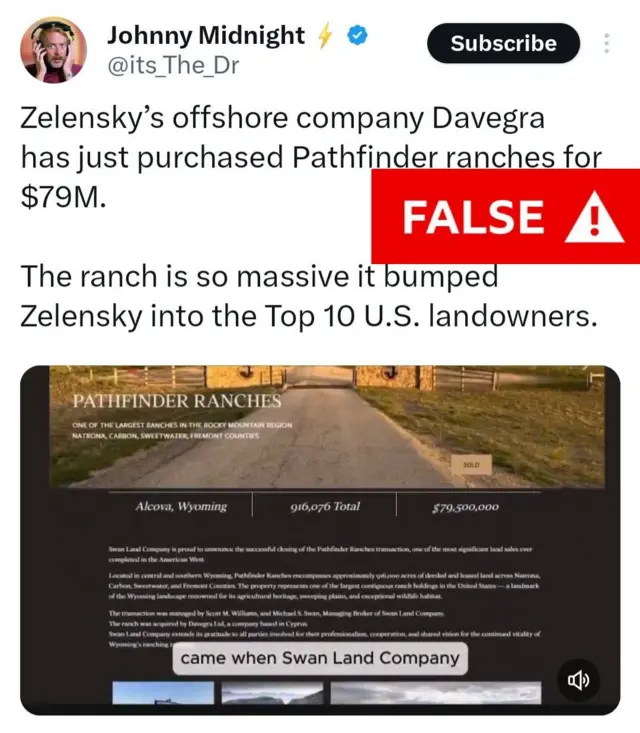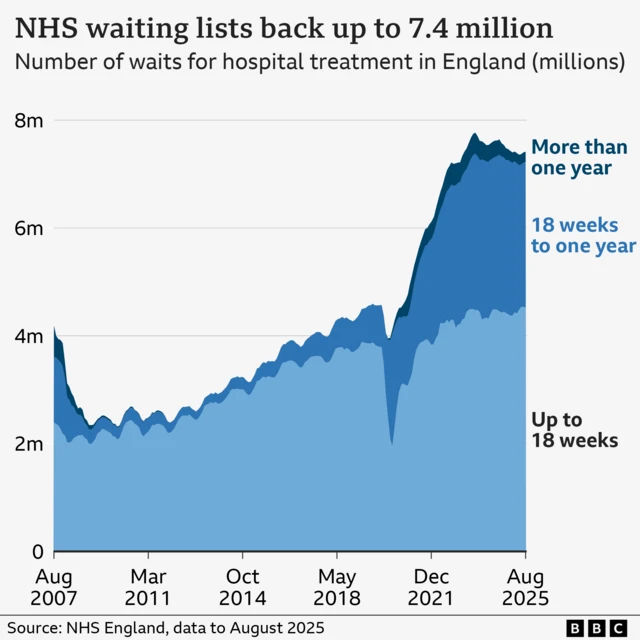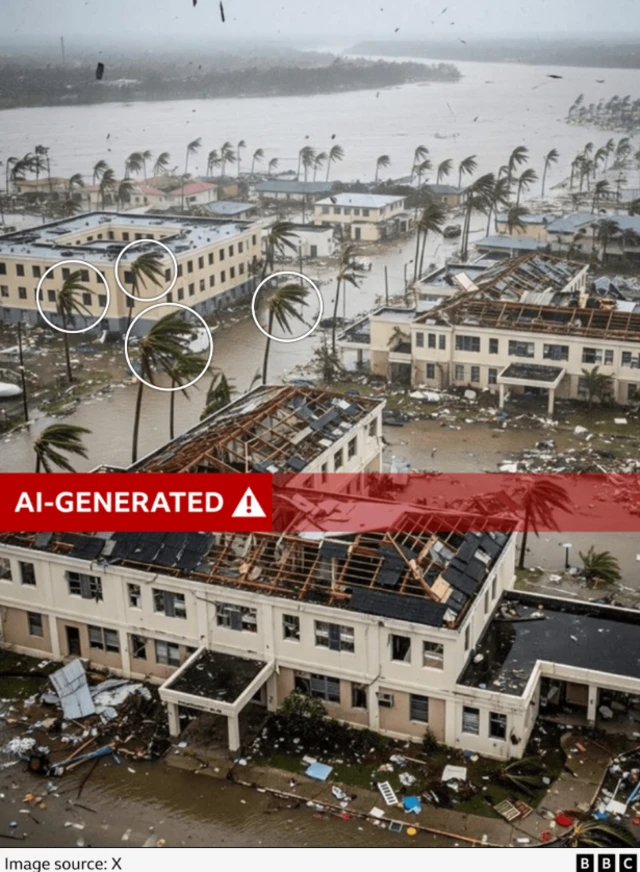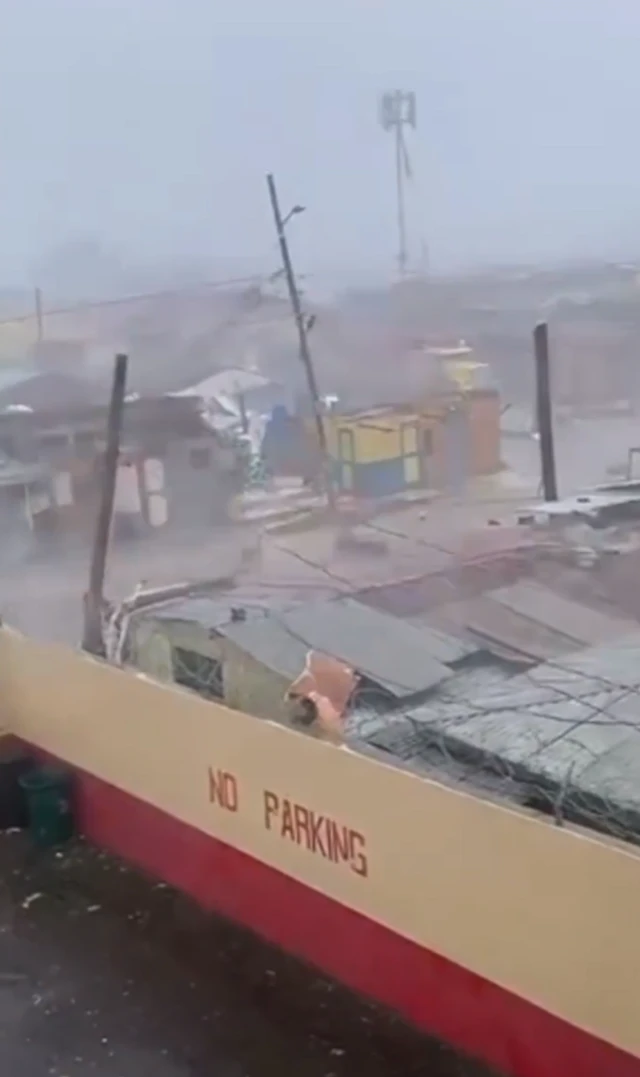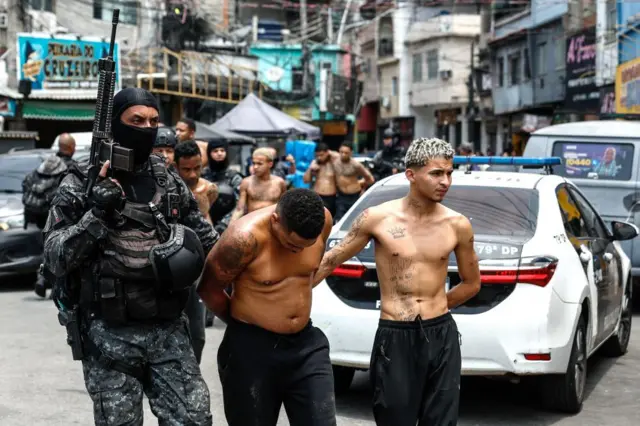Cartel attack drones and a hurricane conspiracy theorypublished at 17:18 GMT 29 October
 Thomas Copeland
Thomas Copeland
BBC Verify Live journalist
We’ll be closing up our live page soon so here’s a summary of what we have been looking into today.
Violence erupted yesterday in Rio de Janeiro after Brazilian police launched a raid against the notorious Comando Vermelho drug gang, leaving more than 130 people dead.
The team has verified graphic videos showing dozens of bodies laid out in a street of the city - and we’ve brought you expert analysis on how the cartels are using drones to attack police and competing gangs.
As Hurricane Melissa heads towards Cuba, we’ve authenticated images of its path of devastation across Jamaica and we’ve debunked an online conspiracy theory that the storm was “engineered” to make way for so-called “smart cities”.
Plus, videos analysed by BBC Verify show fighters from the paramilitary Rapid Support Forces in Sudan have executed unarmed people after capturing the city of el-Fasher. Click here to read our full story.
See you tomorrow for more from BBC Verify Live.


